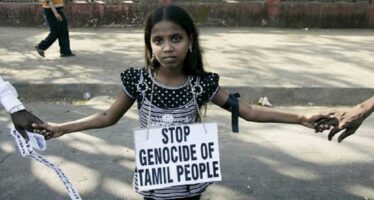Elections with surprise
![]()
The most interesting result of the 25th July 2009 election in Iraqi Kurdistan is that the new parliament is certainly more coloured than the previous one, and there is hope that it will be able to produce more opposition, that is more of the many needed reforms and democratic processes.
After having been rivals for more than 20 years, since the mid 90’s Barzani’s PDK (Democratic Party of Kurdistan) and Talabani’s PUK (Patriotic Union of Kurdistan) decided to forget about their disagreements in order to equally share the power hubs made available by the new Kurdish regional government of Iraq. Thus, on the January 2005 elections, PDK and PUK agreed on allying themselves in one only list, together with some other minor parties. The result was that their list (DPAK – Dempcratic Patriotic Alliance of Kurdistan) gained almost 90% of the votes, that is 100 out of the 111 seats available in the Kurdish regional parliament (of these 100, 40 were for KDP, 38 for PUK, and the remaining ones shared between all the other minor parties).
The clear stability of such a parliament in the following 4 years of goverment has certainly granted to the emergent political reality of Iraqi Kurdistan some important acknowledgements within the international community, as much as a strong position in its relations with the central Baghdad government, but it has failed to provide fair solutions to the much needed internal reforms and the management of economy.
As the 2009 elections got closer, it was clear that these ballots would not have produced such a monolithic result as the previous ones. KDP and PUK themselves realized this fact, and felt the need to organize a proper electoral campaign, unlike in 2005, in order to present their programs and react to the political attacks of their rivals.
The most challenging opponent to the KDP-PUK duopoly happened soon to be Nusherwan Mustafa, a wealthy entrepreneur and politician who had decided to detach from PUK, for which he had formerly been a parliamentarian, in order to found the Goran (Change) list. Mustafa based his campaign accusing KDP and PUK of preserving the status quo by fostering corruption and nepotism. He immediately gained a lot of support, specially within the youth and the urban population (and particularly in Suleymanyie, that is Talabani’s capital), also helping himself with his wealth for using all necessary means and media for the electoral campaign.
In the end, the 25th July 2009 elections were massively attended with a turnout of 80% (that is about 2 million voters out of 2.5 milions), producing the following results:
Kurdistan List (composed only from KDP and PUK): 59 seats in parliament
Goran List: 25 seats
Service and Reform list (an alliance of Socialdemocrats and moderate islamists): 13 seats
The remaining 14 seats (out of 111) were shared by other Ilamists, Communists and representatives of ethnic minorities as Turkmens, Assyrian-Chaldeans, Armenians.
Related Articles
Tamil Eelam And The Rojava Revolution
![]()
The following interview was conducted by the Rojava Report with Athithan Jayapalan, a Tamil activist living in Europe. In the interview Athithan
Bullets won’t solve anything – The Morning Star
![]()
For all the sense that David Cameron spoke following the Cobra emergency committee meeting, he might
Kurds fear a return to the past
![]()
With the beginning of the peace process started by the Kurdish leader Abdullah Öcalan, Kurds are moving back to the



